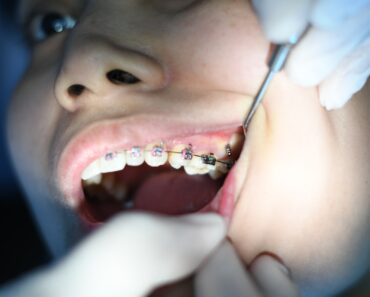The human body needs a lot of macronutrients which include fat, protein, and carbohydrates. Carbs break down into blood sugar or glucose and are ultimately utilized as a daily energy source. This means that we do necessarily require some amount of carbs in our daily diet, but excess of these can may lead to certain ailments and weight gain. Therefore, a low-carb intake depending upon the intensity of daily individual human activity is necessary. Weight reduction can be a prime reason for opting for a low-carb diet. But besides weight reduction, it has other health benefits too. It reduces the risk of type-2 diabetes as well as metabolic syndrome.

Before starting any low-carb diet, it is best to keep a track of your daily intake of healthy and unhealthy carbohydrates with the help of any android or iOS application. You need to know which foods have low carbs. Fill your plate with low-carb foods, add protein-rich foods, and there you go. You can start following any low-carb diet and see for the changes in weight loss over a couple of weeks. It is very easy to follow as you have to eat some protein-rich foods, healthy fats and vegetables in every meal of yours. You can also include nuts, full-fat dairy products, and seeds in your diet. You will start noticing weight loss within 10-20 days provided you follow a routine and avoid inactive and redundant life-style. Some people can get results sooner than this while some have to wait for more according to body type. Reports have shown that some people lose 3 to 10 pounds of weight during the first few weeks of a low-carb diet. You can make things easier by mapping out a meal plan a week earlier. This will help you stick to the plan and only eat those things included in the plan.
WHAT TO EAT ON A LOW-CARB DIET
A low-carb diet limits intake of carbohydrates which include grains, legumes, sugary foods, fruits, starch-rich foods like pasta, bread, and it focuses on the intake of vegetables and fats. There are several low-carb diets suggested by different proponents of the low-carb theory. Each of these diets offers a varying, however, comprehensive meal plan.
Researches have shown that complex carbohydrates, including starch-containing foods like beans, legumes, whole grain products, etc., must be added in low-carb meals. These take a long duration to break down and provide sufficient minerals and vitamins. In addition, fiber-containing foods are complex healthy carbohydrates that include most fruits and vegetables. Fiber-rich carbs are recommended to be added to the meals when following a low-carb diet plan. You can add lean meat, eggs, fish, leafy green vegetables, nuts and seeds, healthy fats, oil such as olive oil, coconut oil, and rapeseeds oil, fruits like apples, raspberries, and blueberries, unsweetened dairies like plain milk and Greek yogurt to your diet.
It is always important to remember all those foods which are restricted in a low-carb diet. Refined grains like rice, bread, legumes like corn and beans, sugars, and dairy products are the topmost sources of high carbohydrates and must be avoided when on a low-carb diet.
HOW MANY CARBS SHOULD I EAT ON LOW-CARB DIET?
There is no strict rule of a low-carb diet, but eating under 100-150 grams per day is considered a low-carb diet. A person’s sex, age, activity levels, body type, metabolic health can decide the exact value of carb intake. You can get your desired results by restricting carbohydrates and including protein-rich foods in your diet, i.e. following a low-carb diet. A most simple thing to remember is that if you want to reduce your weight through a low-carb diet you have to remove unhealthy carbohydrates from your diet. Low-carb diets vary as per individuals, in some cases the dietitians would allow small amounts of carbs in daily meals while others retract the subjects from having carbs. The Dietary Guidelines for Americans suggest that 45% to 60% of our daily calorie intake is extracted from carbs. Physically active people, who want to maintain their weight, can get desired results by eating anything under 100 – 150 grams/day. But for people, aiming for weight reduction, eating less than 50 grams a day will help. Most important thing is to do experiments as there is no hard and fast formula for a low-carb diet.






